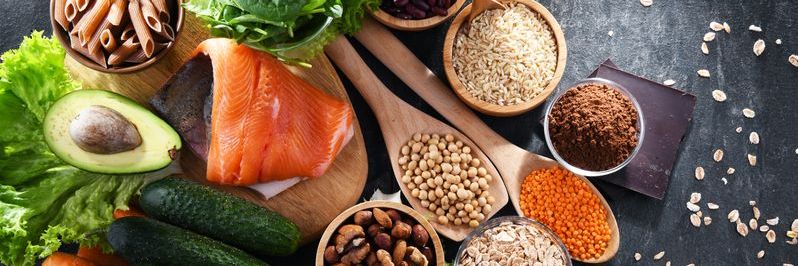
Have you ever heard the saying, “You are what you eat”? When it comes to the health of your eyes, this couldn’t be more true. The foods we consume play a significant role in maintaining healthy vision and preventing eye diseases. In this comprehensive guide, we’ll explore the key nutrients crucial for eye health, the foods that contain these nutrients, and the specific health benefits they offer for our eyes. Whether you’re looking to protect your vision for the future or seeking ways to improve your eye health, understanding the relationship between nutrition and your eyes is essential.
The Key Nutrients and Where to Find Them

Vitamin A
Why It’s Important: Vitamin A is vital for preserving eyesight, especially in low-light conditions. It supports the function of the cornea, the clear covering of the eye, and is essential in preventing night blindness and reducing the risk of eye infections.
Food Sources: Carrots are famously rich in beta-carotene, a form of Vitamin A. But you can also find it in sweet potatoes, kale, and spinach.
Omega-3 Fatty Acids
Why It’s Important: Omega-3s are crucial for eye health. They support the development and maintenance of the retina and may help prevent dry eyes and combat age-related macular degeneration.
Food Sources: Fatty fish like salmon, as well as flaxseeds and walnuts, are excellent sources of Omega-3 fatty acids.
Lutein and Zeaxanthin
Why It’s Important: These antioxidants act as a natural sunblock for the eyes, protecting them from harmful UV rays and blue light. They are linked to a lower risk of macular degeneration and cataracts.
Food Sources: Green leafy vegetables like spinach and kale, as well as eggs, are rich in lutein and zeaxanthin.
Gamma-Linolenic Acid (GLA)
Why It’s Important: GLA may assist in managing dry eye symptoms and contribute to the overall health of the eyes.
Food Sources: Primarily found in evening primrose oil and borage oil.
Vitamin C
Why It’s Important: Vitamin C supports the health of blood vessels in the eyes and may help slow the progression of age-related macular degeneration and prevent cataracts.
Food Sources: Citrus fruits, berries, tomatoes, and bell peppers are packed with Vitamin C.
Vitamin E
Why It’s Important: Vitamin E, combined with Vitamin C, can reduce the risk of advanced age-related macular degeneration.
Food Sources: Almonds, peanuts, and sunflower seeds are good sources of Vitamin E.
Zinc
Why It’s Important: Zinc plays a crucial role in transporting Vitamin A from the liver to the retina, aiding in the production of protective pigment melanin.
Food Sources: Oysters, beef, pumpkin seeds, and cashews are rich in zinc.
Incorporating These Foods Into Your Diet
Making dietary changes to include these nutrients doesn’t have to be difficult. Start by incorporating a variety of colourful fruits and vegetables into your meals, choosing fatty fish for dinner a couple of times a week, and opting for nuts and seeds as nutritious snacks.
Remember, while a healthy diet can do wonders for your eye health, it’s not a substitute for regular eye check-ups. If you have concerns about your vision or eye health, or if you’re interested in learning more personalised nutritional advice for your eyes, booking an eye health consultation could be a beneficial next step.
Take Action for Your Eyes
Your eyes are windows to the world, and taking care of them starts with what you put on your plate. By integrating foods rich in these key nutrients into your daily diet, you’re not only enhancing your vision but also contributing to your overall health and well-being.
Interested in taking further steps towards healthier eyes? Book an eye health consultation today to get personalised advice and ensure your vision stays sharp for years to come. Your eyes deserve the best care, and it all starts with you.
